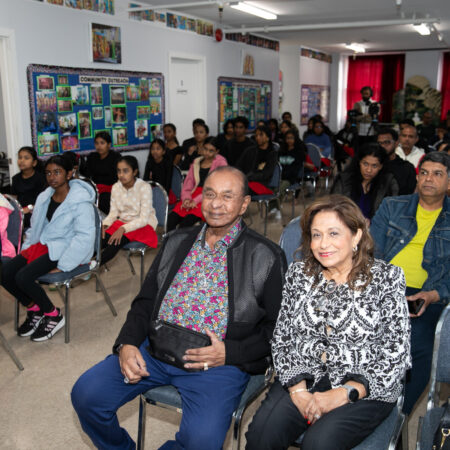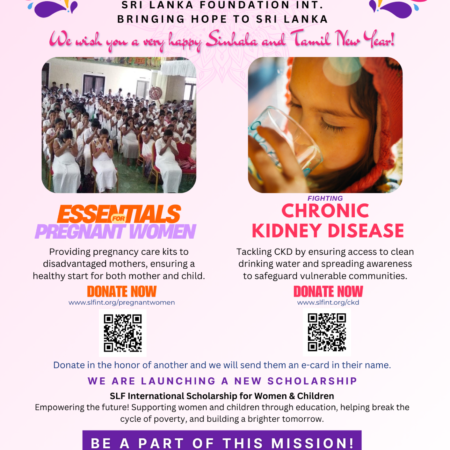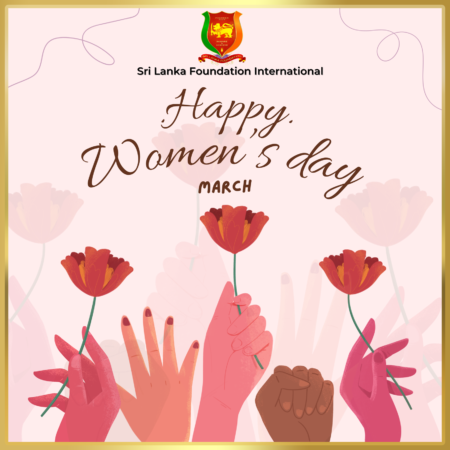Donate Now: SLYO GoFundMe SLYO writing to you today to appeal for your support for a cause that is close to our hearts – providing free medical care to the struggling communities in Sri Lanka. The rising costs of medication, severe fuel shortages, and food insecurity have made it impossible for many citizens to access healthcare services and maintain their health. This has particularly impacted rural, low-income communities such as tea estate workers, paddy-field workers, and fishermen, who often lack adequate healthcare access. As a result, the Sri Lankan Youth Organization (SLYO) is organizing a one-day medical camp in Nelawa, Kurunegala, to serve approximately 600 locals. This community is facing significant financial hardships and severely limited healthcare access, and our goal is to make a tangible difference in their lives. Your generous donation will support the purchase of essential medications and medical equipment that we will
Read More →
Sri Lanka: From ‘Troubled Nation to Start-up Nation’ – A Hatch Initiative.
Award-winning startup ecosystem builder Hatch is on a mission to change the narrative that currently clouds the media by highlighting stories of hope and resilience. Hatch is home to over 120 startups, showcasing home-grown entrepreneurs with a global mindset who will transform Sri Lanka. Having commenced with just 28 startups, the Hatch community has seen tremendous growth since its inception just four years ago. 37% of the startups incubated by Hatch have been accelerated through startup programs, and 33% are female founder-led startups. In the coming years, Hatch envisions an economy fueled by purpose-driven innovators supported by its thriving startup ecosystem to establish Sri Lanka as a startup nation. The unique geographical and commercial potential of Sri Lanka has been a point of emphasis for Sri Lanka’s startup ecosystem, and Hatch has been successful in propelling the value proposition to global stakeholder groups. Hatch’s recent partnership with Draper
Read More →
Read More →
SLF Int, USA DONATED TO V2U COMMUNITY FOR THE FIFTH PROJECT IN DEHIATHTHAKANDIYA TO EMPOWER SELF-EMPLOYMENT AND FIGHT AGAINST HUNGER!!
Sri Lanka Foundation International, USA, donated to the V2U Organization founded in Canada to support the fifth Project in Dehiaththakandiya, to prepare land for raising crops to cultivate a field which Ulhitiye Homalokha Thero spearheaded in five different areas in the Ampara District. The main objective of the V2U Community Organization is to educate Sri Lankans on food cultivation to create self-generating employment opportunities in agriculture and other related fields. Agriculture is essential to the Sri Lankan economy, engaging one-third of the working population. However, most farm households need more knowledge of production methods and face a financial struggle to access land for cultivation. These obstacles constrain their ability to compete in the market and increase their incomes. In response to these challenges, Sri Lanka Foundation International and V2U Community Organization are partnering on the Supporting Opportunities in Livelihoods Development projects, which train farm households in the country’s eastern regions
Read More →
Read More →
Professor Mohan Munasinghe, the 2021 Blue Planet Laureate, Receives Honors from Japanese Royalty
Professor Mohan Munasinghe, a Sri Lankan engineer, physicist, and economist specializing in energy, water resources, sustainable development, and climate change, was awarded the 2021 Blue Planet Prize, the top global environmental sustainability award “the Environmental Nobel Prize.” Professor Munasinghe and Mrs. Sria Munasinghe attended the ceremonies for the Blue Planet Prize hosted by the Asahi Glass Foundation in Tokyo, where they were felicitated by Royalty and other grandees of Japan. The ceremony had been postponed to October 2022 due to the Covid Pandemic restrictions in 2021. The Royal Highnesses Crown Prince Akishino and Princess Kiko of Japan granted Prof. Munasinghe and his wife an exclusive audience. In addition, they exchanged mutual felicitations with HRH Sonam Dechen Wangchuck, who attended the ceremony on behalf of her father, His Majesty Jigme Singye Wangchuck, the Fourth King of Bhutan, the 2022 Blue Planet Prize laureate. The award recognizes Prof. Munasinghe’s extensive environmental and
Read More →
Read More →
Launch of New U.S. Embassy in Colombo, Sri Lanka
In a celebration of more than 70 years of U.S.-Sri Lankan friendship partnership and bilateral ties, the Honorable President Ranil Wickramasinghe, U.S. Ambassador to Sri Lanka Julie Chung, and the U.S Department of State’s Under Secretary for Management John Bass opened the new U.S. Embassy on Galle Road in a festive event that included officials and private citizens from both countries. “It was a great honor to celebrate our new Embassy in the presence of the President of Sri Lanka, honored guests, and colleagues, said U.S. Ambassador Chung. “We have had an embassy in Colombo since Sri Lanka’s independence in 1948, and the new campus symbolizes our enduring partnership with Sri Lanka. Americans and Sri Lankans worked together to build this state-of-the-art facility that epitomizes respect for the environment and appreciation of Sri Lankan architectural, cultural, and artistic themes. We are pleased to open our new doors to our Sri
Read More →
Read More →
Ceylon Coffee- Will the New Hype Usurp the Good Old Ceylon Tea?
Sri Lankan plantations are planning to brand Ceylon coffee as a globally sought-after brand of coffee. The growing preference for coffee over tea renders an excellent opportunity for this venture. In the last decade, Sri Lankan coffee has shown remarkable growth in production volumes. Due to the industry’s expansion, exports of coffee brought in USD 0.32 million in 2019. According to the Lanka Coffee Association (LCA), the Regional Plantation Companies (RPCs) entering this market segment are using this opportunity to be the key movers in this sector. The already established brand value of Ceylon Tea and the excellent terrain in Sri Lanka will surely benefit this endeavor. More smallholder farmers are now progressing into coffee farming. In areas like Nuwara Eliya and Welimada, smallholders commonly cultivate coffee as a secondary tea crop. Plantation firms are highly considering growing coffee as an alternate crop as the output of tea declines. After
Read More →
Read More →
SLF Int, USA Outstanding Performance By a Young Professional Award Winner Rukshan Henry De Silva for his excellence as a Principal Planner, Building Communities and the Environment.
Rukshan De Silva, The Waterloo alumnus, was named Australian Young Planner of the Year, recognising emerging leaders for outstanding contributions to their field. Among Rukshan’s many achievements, Planning Institute Australia lauded his commitment to innovation in the workplace, his collaboration with communities and government planners, and his volunteer contributions, including strategic land use planning in Peru and involvement with PIA’s National Settlement Strategy Team. Rukshan currently works as a principal planner at the New South Wales Department of Planning and Environment, where he’s leading the design of Australia’s most extensive ski town. Rukshan has always been a community man — volunteering his time to give back to his community in any way he can — something that’s continued since his elementary school days. Growing up, he was also very creative and interested in design. Put design and community together, and that’s the sweet spot, so designing communities for a living
Read More →
Read More →
SLF Int, USA Exceptional Achievement Award Winner Prof. Sharika Thiranagama For her Excellence in Anthropology
Prof. Sharika Thiranagama is the Assistant Professor of anthropology at the New School for Social Research and Visiting Assistant Professor of anthropology at Stanford University. Her research has focused on various aspects of the Sri Lankan civil war. Primarily, she has researched two ethnic groups: Sri Lankan Tamils and Sri Lankan Muslims. Her research explores changing forms of ethnicization, the effects of protracted civil war on ideas of home amid profound displacement and the transformations in and relationships between the political and the familial amid political repression and militarization. Since 2014, Sharika Thiranagama has also carried out new work in Kerala, South India centering on Dalit agricultural communities in Kerala, South India. She examines how communist-led political mobilization transformed everyday and political mobilization and reconfigured older caste identities, re-entrenching caste inequities into new kinds of private neighborhood life. Prof. Sharika Thiranagama, In My Mother’s House: Civil War in Sri Lanka,
Read More →
Read More →
US Ambassador to UN Food & agriculture agencies in Rome to visit SL
United States Permanent Representative to the UN Food and Agriculture Agencies in Rome Ambassador Cindy McCain will visit Sri Lanka from September 25-28 to highlight U.S. food assistance programs in Sri Lanka and reinforce the U.S. commitment and lasting partnership with the island nation. The US embassy in Colombo said that in addition to meeting with senior government officials and aid organizations in Colombo, Ambassador McCain will join U.S. Ambassador to Sri Lanka Julie Chung to travel to Central Province to visit schools, agricultural research facilities, and community organizations and meet with recipients and implementers of relief provided through U.S. government-funded humanitarian assistance programs. The United States is the single largest country donor to the three United Nations food and agriculture agencies, the Food and Agriculture Organization (FAO), the International Fund for Agricultural Development (IFAD), and the World Food Program (WFP). U.S.-funded UN projects showcase how the U.S. government, the
Read More →
Read More →
SLF INT, USA DONATED TO V2U COMMUNITY ORGANIZATION FOR A PROJECT IN MORAWAKA, MATARA TO EMPOWER SELF EMPLOYMENT AND FIGHT AGAINST HUNGER!!
The V2U Community nonprofit organization was established in November 2021 in Toronto, Canada, by Thiwi Gama and Sanjeewa Pushpa Kumara in the USA. The organization’s vision is to rebuild Sri Lanka with “no boundaries or bias” while empowering Sri Lankans in the fight against hunger by promoting the cultivation of privately owned land for food production. The main objective of the V2U Community Organization is to educate Sri Lankans on food cultivation to create self-generating employment opportunities in agriculture and other related fields. Sri Lanka Foundation International, USA, donated to the V2U Organization to support a project in Morawaka, Matara district, to prepare land for raising crops to cultivate a field which Puwakbadaowita Saranda Thero spearheaded. The Chairman of the Sri Lanka Foundation International, USA, Dr Walter Jayasinghe’s vision for this Project is a multi-faceted initiative to rebuild villages struggling educationally and economically. The ambition is a replicable model to create
Read More →
Read More →










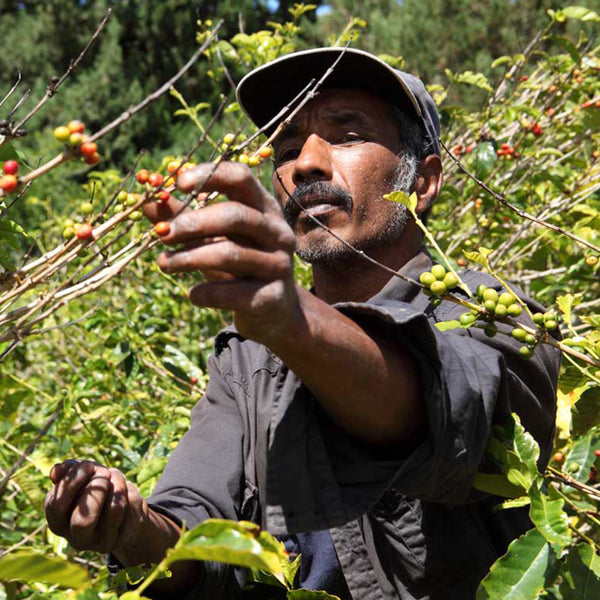




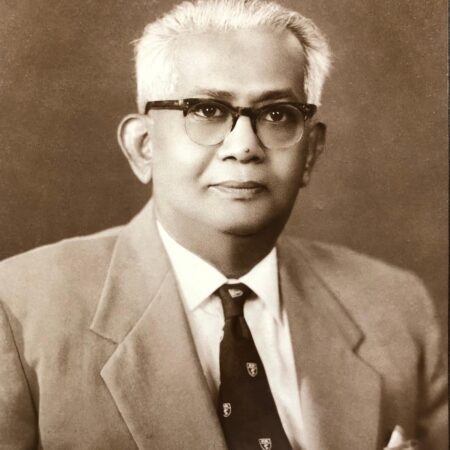
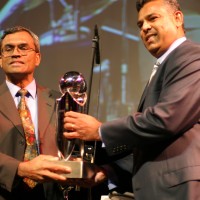


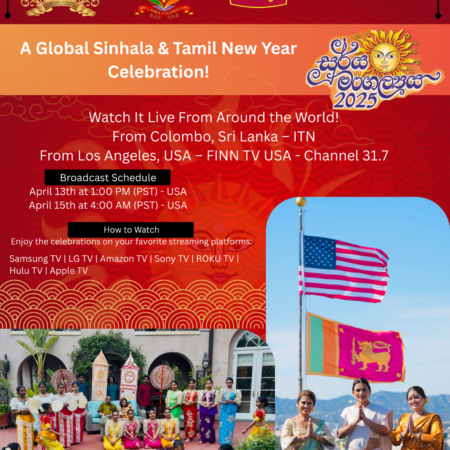
![TV-Poster-All-Exhibition-Sri-Lanka-in-Focus-USA-2025[1]](https://www.srilankafoundation.org/wp-content/uploads/2025/04/TV-Poster-All-Exhibition-Sri-Lanka-in-Focus-USA-20251-450x450.jpg)
